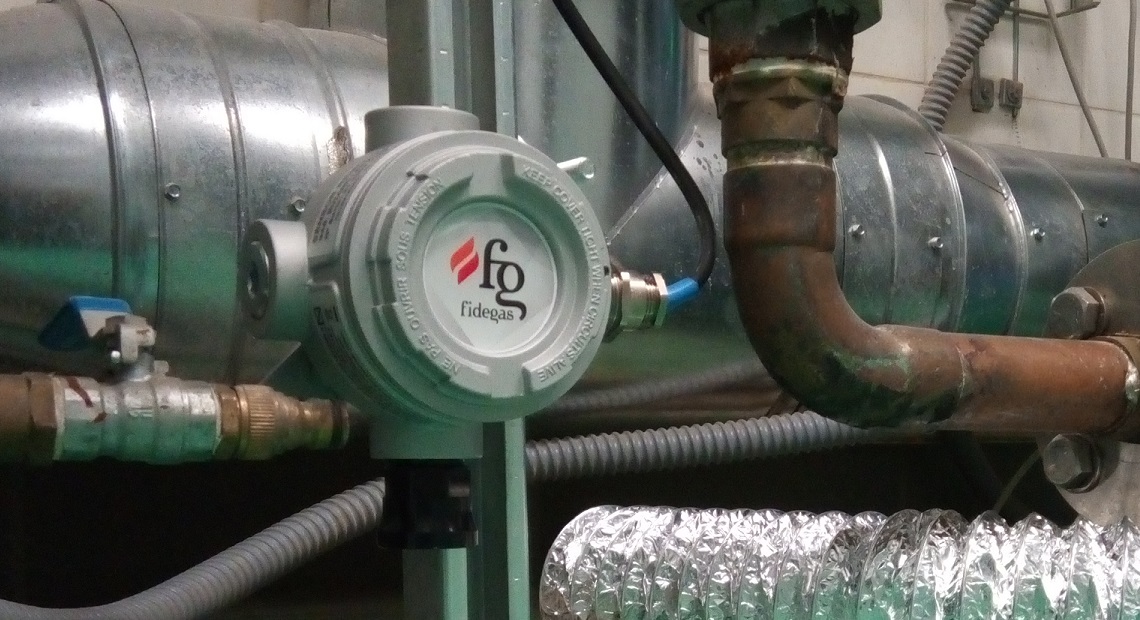The Thermal Energy and Building Performance research group of IREC has developed at the Semi-virtual Energy Integration LABoratory (SEILAB), located in Tarragona, a new system for the safe handling of refrigerant R-290 (propane) within the context of the Horizon 2020 TRI-HP project (Trigeneration systems based on heat pumps with natural refrigerants and multiple renewable sources, https://www.tri-hp.eu/). This system has recently been certified by the College of Technical Industrial Engineers of Tarragona and allows the safe testing of heat pumps with propane.
Hydrocarbons, or natural refrigerants like propane, have low impact on global warming and climatic change, as measured by Global Warming Potential (GWP) referring to CO2 as the unit. The refrigerant R-410A, the most widely used in products available in the market, has a GWP over 2000 and its current alternative, R-32, a GWP of 675, which is still relatively high. The GWP of propane is only around 3, which means it has much less potential to contribute to global warming if released in the atmosphere than the other refrigerants previously cited. For this reason, the research on heat pumps with natural refrigerants is particularly relevant.
The current legislation promotes refrigerants with lower GWP. The European Regulation (EU) No 517/2014 on fluorinated greenhouse gases sets deadlines for the use of these traditional refrigerants. From 2022, new and retrofitted commercial systems must use refrigerants with GWP under 150. A similar restriction of GWP under 750 will apply for domestic systems after 2025. This process will eventually lead to the general adoption of alternative refrigerants, like hydrocarbons. The heat pump industry will face this challenge in a very dynamic market, expected to double its size in the period 2018-2024.
SEILAB offers testing and innovation services for Heat Pumps and HVAC devices since 2013.
Please, visit the SEILAB facilities to know more about its smart integration of electrical and thermal components, which makes it a leading experimental facility for improving the development of Net Zero Energy Buildings and Energy Flexible buildings.


This project has received funding from the European Union’s Horizon 2020 research and innovation programme under grant agreement No. 814888.



